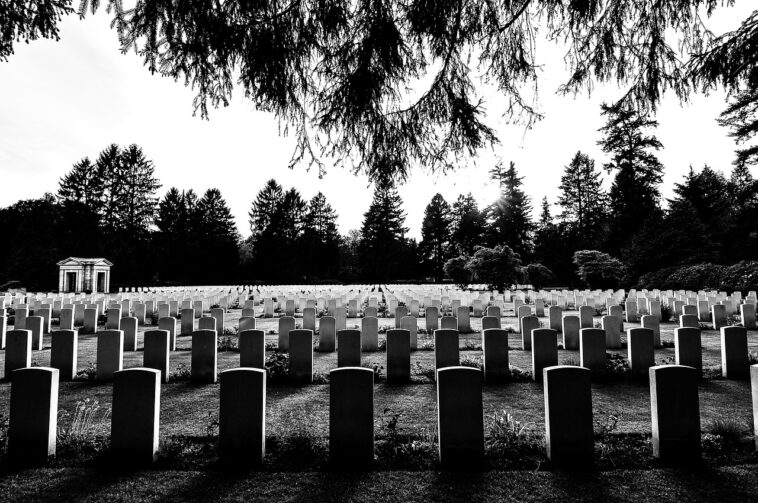Table of Contents
What Is Cremation and What Does the Bible Say About Cremation?
Cremation may be a process during which intense fire is employed to rework the physical body back to its basic elements, “ashes to ashes, dust to dust.” Because most of the body is tissue, it’s vaporized within the process leaving bone behind. This is often completed during a crematory, a masonry lined enclosure with temperatures of 1800-2000 degrees.
When someone wishes to be cremated, typically they’re placed in a wooden or cardboard casket and placed within the chamber. Within a couple of hours, the body is reduced to bone fragments. The bone fragments are then placed on a table and all-metal debris like pins, screws, titanium limbs, are removed by hand. The bone fragments are then placed during a special processor that crushes the fragments to a fine powder. These “cremains” are then placed in a bag inside an an urn and returned to the loved one’s family.
It may not offer you the confirmation you would like, but here is your answer about what the Bible tells us about cremation – as best as I can tell, there’s no Bible passage that attempts to offer guidelines regarding acceptable burial procedures. regardless of which burial practices one follows, the results are always the same: “Dust to dust, ashes to ashes.” Job reiterated the ultimate disposition of the body in Job 34:14-15: “If it were his intention and he withdrew his spirit and breath, all mankind would perish together and man would return to the dust.”
The ancient Egyptians embalmed bodies to delay decay and to organize for the afterlife. In first-century Israel, bodies were buried on the day of death! A 60-foot length of one-foot-wide cloth was wrapped round and round the deceased while all kinds of spices were sprinkled within the wrappings so as to scale back the stench of decay. The bodies were then placed in caves or stone sepulchers. In more recent times, it’s customary to embalm a body before burial so as to delay decay long enough for the family to mourn the deceased and to offer time for out-of-town friends and relatives to arrive before the funeral.
Burial procedures are rapidly changing in today’s culture. Many of us are turning to cremation because of the body disposition of choice. one of the first drivers during this change is the astronomical cost of getting a “traditional funeral.” the prices for embalming, buying a casket, and buying a bit of ground to place the casket in is cost-prohibitive for too many families. The only long-term difference between embalming and cremation is time. Cremation just accelerates the method.
Why Are More People Choosing Cremation?
A common reason why more people are choosing cremation is to avoid the expenses associated with funeral services and burial. A standard funeral can often cost around $8,000 to $10,000 while the typical cost of cremation is $1,500 to $2,500. There’s also the value of digging a grave and buying funeral plots also. Both frolic $1,000 each.
A new growing trend developed in Italy is the Capsula Mundi project. The value of those biodegradable urns is around $500. Anna Citelli and Raoul Bretzel have developed an organic, biodegradable burial capsule that will turn the deceased’s body into nutrients for a tree that will grow out of their remains. After being encapsulated within the fetal position, the deceased is buried and either a tree or tree seed is planted above their capsule. As of immediately, the project is waiting to realize the clearance of burial laws. If it’s approved, the goal is to make memorial parks filled with trees rather than tombstones.
Trees hold great symbolism and meaning across many various cultures. In some ways, a tree’s life cycle mirrors the human experience. God starts us from a seed within the womb. We grow from young and little too strong, tall, and firmly rooted within the ground of his Word. Eventually, we get older and pass from this earth to heaven.
What Does the Bible Say About Cremation?
You may have the best to research why your family doesn’t approve of your cremation choice. Perhaps they consider cremation as not Biblical. However, as we’ve seen, cremation isn’t a Biblical issue. Here are other concerns of Christians about cremation.
1. Perhaps they’re worried that when Jesus returns at the Rapture and therefore the bodies of long-dead Christians are resurrected and transformed into spiritual bodies — that you simply won’t have a body to resurrect. Frankly, since the primary century, most (if not all) bodies are now dust anyway. Since God is large enough to supply a world-wide resurrection, He certainly can make a spiritual body from only a speck of dust or less.
2. Perhaps your family wants you during a casket-filled grave in order that they can have an area for remembering you and your lives together. This desire is natural and normal.
Recently, I’ve observed families foregoing the expensive caskets and burial plots by choosing cremation. They then purchase a little cemetery plot during which to bury the ashes. Others scatter the ashes over a prearranged place meaningful to the deceased. Some save a couple of ashes during a small locket as a token reminder of their beloved. Some ashes reside in burial urns over fireplace mantles.
With all that being said, remember that your body remains your body. Discuss openly together with your family that you simply want to eliminate your body within the way most comfortable to you. In your case, that’s cremation.

